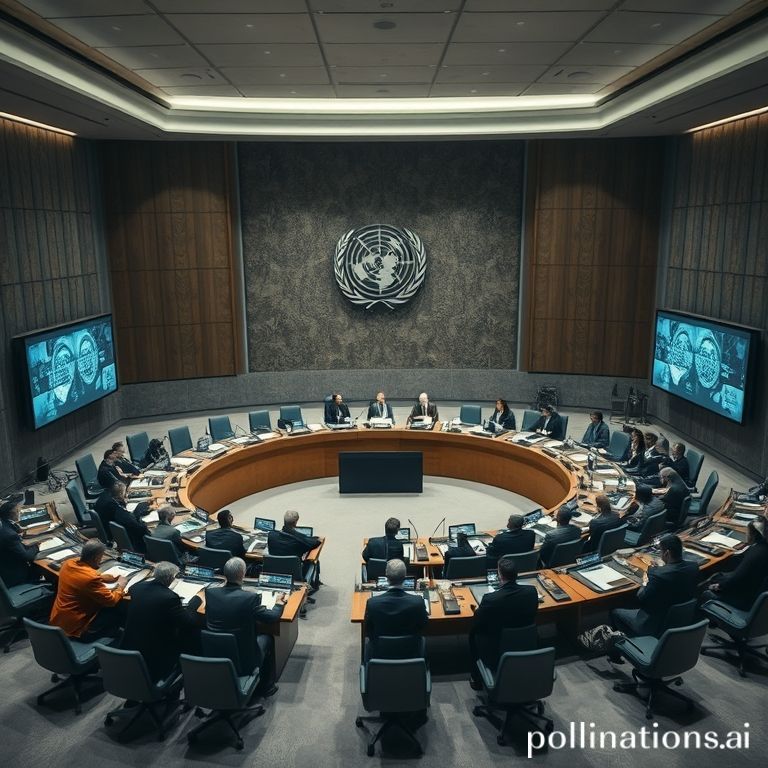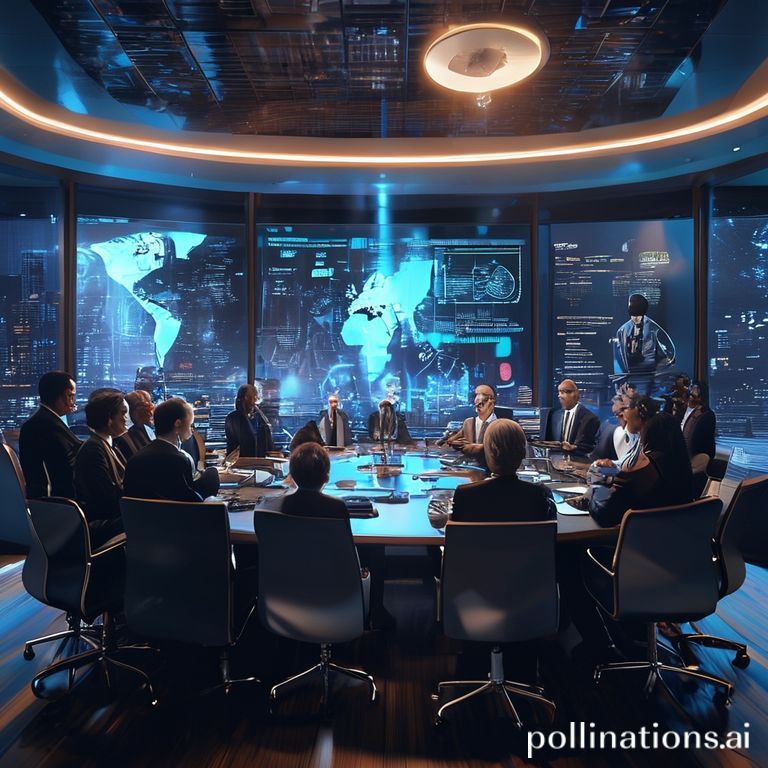
In a move that underscored the escalating global concerns surrounding advanced technology, the United Nations Security Council convened an emergency session in 2025. The urgent agenda item: the regulation of autonomous AI weaponry. This pivotal moment highlighted a critical juncture in human history, where the rapid evolution of artificial intelligence forces humanity to confront profound questions about ethics, control, and the very future of global security. As nations grapple with the implications of machines capable of making life-and-death decisions without human intervention, the quest for total peace in an increasingly complex world demands a proactive and unified approach. This article explores seven ultimate security tips that are essential for navigating this new era and ensuring comprehensive global stability.
The Dawn of Autonomous AI Weaponry and Global Security
The year 2025 marked a watershed moment, with AI advancements moving beyond theoretical discussions into tangible, deployable systems. Autonomous AI weaponry, often referred to as Lethal Autonomous Weapon Systems (LAWS), represents a paradigm shift in warfare. These systems are designed to select and engage targets without human supervision, raising unprecedented ethical, legal, and strategic dilemmas that challenge existing international laws and norms.
The potential for rapid escalation, miscalculation, and the lowering of the threshold for conflict are significant concerns. The UN Security Council’s emergency session wasn’t just about hypothetical threats; it was a response to the very real prospect of these weapons proliferating and reshaping the landscape of international security. The implications for peace and stability are immense, demanding immediate and collective action from the global community.
Understanding the Security Landscape of Tomorrow
The introduction of LAWS profoundly alters the traditional understanding of warfare. No longer are battles solely fought by human decision-makers; algorithms could soon dictate engagements. This shift could lead to conflicts that are faster, more widespread, and potentially more devastating, with less time for de-escalation or diplomatic intervention.
The security landscape of tomorrow is one where the lines between offense and defense blur, and the potential for an AI arms race looms large. Nations fear being left behind, driving a competitive development cycle that could erode trust and increase global instability. Ensuring robust international security measures becomes paramount to prevent a future defined by autonomous conflict.
Tip 1: Establish Robust International Regulatory Frameworks for AI Security
The most critical step towards managing autonomous AI weaponry is the establishment of comprehensive and legally binding international regulatory frameworks. This involves defining what constitutes an autonomous weapon, setting clear red lines on their development and deployment, and creating mechanisms for oversight and enforcement. The UN Security Council, alongside other international bodies, plays a pivotal role in brokering such agreements, drawing lessons from past efforts in nuclear non-proliferation and chemical weapons bans.
The Imperative of Global AI Security Governance
Achieving global consensus on AI weapon regulation is undeniably challenging, given diverse national interests and technological capabilities. However, the alternative—an unregulated arms race—poses an existential threat to humanity. These frameworks must address issues like accountability for actions taken by autonomous systems, the human role in decision-making, and verification methods to ensure compliance. A strong, unified approach to global AI security governance is the bedrock of future peace.
Tip 2: Implement Transparent Development and Deployment Protocols for National Security
To foster trust and prevent an opaque AI arms race, nations must commit to transparent development and deployment protocols for military AI. This includes sharing information on research objectives, testing methodologies, and the ethical guidelines governing AI weapon systems. Such transparency can help build confidence among states, reduce the likelihood of misinterpretation, and create a foundation for collaborative security efforts.
Ensuring Accountability and Security in AI Development
Within national borders, robust internal accountability mechanisms are crucial. This means establishing independent ethical review boards, ensuring parliamentary oversight, and involving civil society in discussions about military AI. Avoiding “black box” development, where the inner workings of AI systems are obscured, is vital for both national and international security. Openness, within appropriate limits, can prevent unintended consequences and promote responsible innovation.
Tip 3: Invest in Comprehensive AI Ethics and Safety Research for Enhanced Security
Beyond regulation, a significant investment in AI ethics and safety research is indispensable. This research should focus on understanding the potential biases in AI algorithms, developing fail-safe mechanisms, and ensuring that human control and oversight remain central to any autonomous system. The principle of “meaningful human control” must be a guiding star, ensuring that humans retain ultimate responsibility and the ability to intervene or override autonomous decisions.
Funding independent research institutions and fostering collaboration between academia, industry, and government can accelerate breakthroughs in AI safety. This includes developing robust testing environments to predict and mitigate unintended behaviors, ensuring that AI systems are not only effective but also reliable and safe. Prioritizing ethical AI development is a direct investment in future global security.
Tip 4: Foster International Cooperation and Dialogue on AI Security
Diplomacy and ongoing dialogue are vital tools in navigating the complexities of AI weaponry. Regular forums for discussion among nations, experts, and civil society can facilitate a shared understanding of risks and opportunities. These dialogues can help identify common ground, build trust, and develop shared norms and best practices for responsible AI use. Initiatives like the United Nations Group of Governmental Experts (GGE) on LAWS are crucial platforms for this engagement.
Sharing expertise and resources, particularly with developing nations, can also help prevent the proliferation of dangerous AI technologies and ensure that the benefits of AI are shared equitably. International collaboration is not just about regulation; it’s about building a collective intelligence to manage this transformative technology responsibly, safeguarding global security for all.
Tip 5: Develop Strong Cybersecurity Defenses Against AI Weapon System Exploitation
Autonomous AI weapon systems, by their very nature, are highly susceptible to cyberattacks. A compromised AI weapon system could be turned against its own creators, fall into the wrong hands, or be manipulated to escalate conflicts unintentionally. Therefore, developing robust cybersecurity defenses, not just for the weapons themselves but for the entire command, control, and communication infrastructure, is paramount.
This includes investing in cutting-edge encryption, intrusion detection systems, and resilient network architectures. Nations must also collaborate on threat intelligence sharing and develop international norms against cyberattacks on critical military AI infrastructure. The integrity and resilience of these systems are fundamental to national and international security in the AI age. Without strong cyber defenses, even the most advanced AI weapons pose a significant risk.
Tip 6: Promote Public Awareness and Education on AI Security Risks
An informed global citizenry is a powerful force for responsible AI governance. Promoting public awareness and education about the risks and ethical considerations of autonomous AI weaponry is crucial. This helps foster a democratic mandate for regulation and prevents misinformation from fueling fear or complacency. Engaging civil society organizations, academics, and the media in these discussions can ensure a broader and more nuanced understanding of the challenges ahead.
Educational initiatives can empower individuals to participate in the debate, holding their governments accountable and advocating for policies that prioritize human well-being and long-term security. A well-informed public is better equipped to understand the stakes involved and support the necessary international efforts to manage this transformative technology responsibly. This collective understanding strengthens the global commitment to peace.
Tip 7: Prioritize Human Control and Oversight in All Autonomous Systems for Lasting Peace and Security
Ultimately, the most fundamental “security tip” for total peace in the era of autonomous AI weaponry is the unwavering commitment to human control and oversight. While AI can enhance capabilities, reduce human casualties in certain scenarios, and process information at unprecedented speeds, the final decision to take a human life must always rest with a human. This principle, often referred to as “meaningful human control,” is an ethical imperative.
It means designing systems where humans are not merely supervisors but active participants in the decision-making chain, capable of understanding, assessing, and overriding actions. Prioritizing human agency ensures that moral responsibility remains anchored, preventing the dehumanization of conflict and upholding the sanctity of life. This commitment to human oversight is the ultimate safeguard for enduring peace and global security.
Conclusion: Charting a Path to Total Peace and Security
The UN Security Council’s emergency session in 2025 served as a stark reminder of the urgent need for proactive governance in the face of rapidly evolving AI technologies. The seven ultimate security tips outlined above—from establishing robust regulatory frameworks and fostering transparency to prioritizing ethics, international cooperation, strong cybersecurity, public awareness, and ultimately, human control—represent a comprehensive blueprint for navigating the challenges posed by autonomous AI weaponry.
Achieving total peace in this new technological landscape requires a collective, sustained, and visionary effort from all nations. It demands a commitment to dialogue over division, ethics over expediency, and human well-being over unchecked technological advancement. The future of global security hinges on the decisions made today. We must act decisively and collaboratively to ensure that AI serves humanity’s highest aspirations for peace, rather than becoming a catalyst for unprecedented conflict. Let us engage in this critical dialogue and advocate for policies that secure a stable and peaceful future for generations to come.


